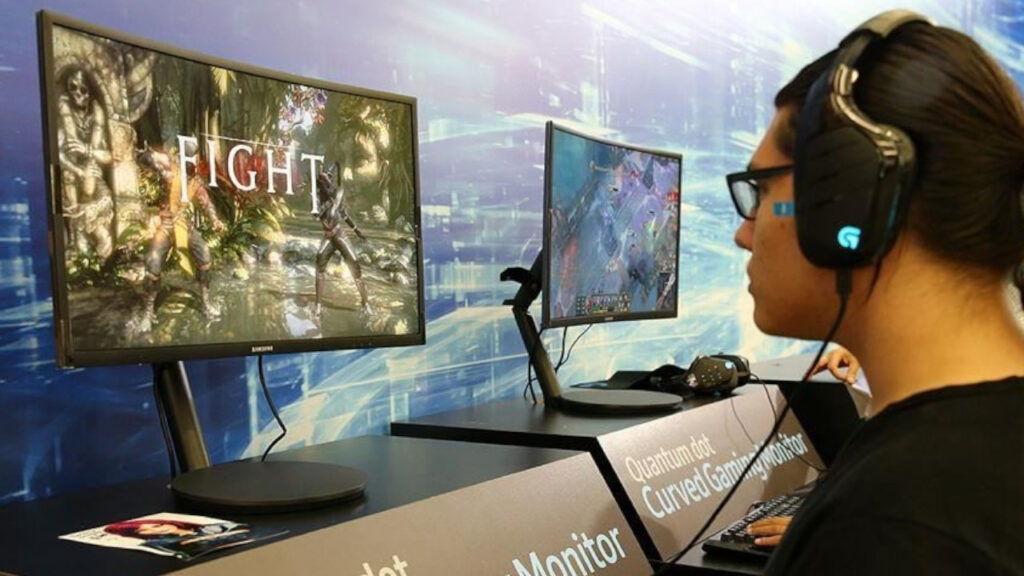Introduction
The world of gaming is undergoing a revolutionary transformation. NFT games are empowering players with true ownership of in-game assets, changing the way we perceive virtual economies. As blockchain technology intersects with gaming, players can now buy, sell, and earn real-world value from digital items. This article explores how NFTs are reshaping gaming, investment opportunities, and digital ownership.
What Are NFT Games?
NFT games, or Non-Fungible Token games, are blockchain-powered games where in-game assets are represented as unique tokens. Unlike traditional games, these digital items are verifiably owned by players and can be traded or monetized.
Key Differences from Traditional Games:
- True Ownership: Players own items outright, rather than merely licensing them from the game developer.
- Play-to-Earn Mechanics: Players can earn cryptocurrency or NFTs through achievements, quests, or battles.
- Interoperability: NFTs may be used across multiple games or platforms, increasing their utility.
- Transparency: Blockchain provides a clear record of transactions, ensuring fairness.
This ownership model creates opportunities for gamers to turn virtual achievements into real-world value.
How Blockchain Powers NFT Games
Blockchain technology forms the backbone of NFT gaming, enabling secure and transparent transactions.
Benefits of Blockchain in Gaming:
- Verified Ownership: Every NFT has a unique identity and transaction history stored on the blockchain.
- Security: Digital assets are protected from tampering or duplication.
- Transparency: Players can verify transactions and ownership without relying on a central authority.
- Smart Contracts: Automated agreements manage trades, royalties, and in-game mechanics reliably.
Blockchain networks like Ethereum, Solana, and Polygon have become popular for NFT games due to their robust infrastructure and smart contract capabilities.
Benefits of NFT Gaming
NFT gaming offers several advantages for players, developers, and investors alike:
- Play-to-Earn Models: Players can earn cryptocurrency or NFTs while playing, creating a potential revenue stream.
- Digital Ownership: True ownership of characters, skins, and virtual land allows for buying, selling, or trading assets.
- Interoperability: Some NFTs are usable across multiple games, increasing value and usability.
- Community Governance: Players can participate in decision-making processes for game development, enhancing engagement.
- Investment Opportunities: Rare NFTs can appreciate in value, offering potential returns for savvy players.
These benefits have driven a surge in NFT gaming adoption, attracting not only gamers but also investors seeking digital assets with tangible value.

Popular NFT Games and Platforms
Several NFT games have gained prominence due to innovative mechanics and strong communities:
- Axie Infinity: A battle-and-breeding game where players earn SLP tokens, tradable for real money.
- Decentraland: A virtual world with land ownership, commerce, and social interaction opportunities.
- The Sandbox: A creative platform where players can build experiences, monetize assets, and interact in the metaverse.
- Illuvium: Open-world RPG with NFT creatures that can be battled, traded, and collected.
- Gods Unchained: A card game enabling ownership and trading of digital cards, combining strategy and investment.
Each platform demonstrates how NFTs and blockchain can elevate gaming beyond entertainment into a thriving virtual economy.
Risks, Controversies, and Sustainability
Despite the excitement, NFT gaming carries certain risks:
- Market Volatility: Prices of NFTs and in-game tokens can fluctuate dramatically.
- Scams and Fraud: New or unverified games may be scams or fail to sustain economies.
- Environmental Concerns: Proof-of-work blockchains consume significant energy, raising sustainability issues.
- Regulatory Uncertainty: Laws surrounding NFTs and crypto assets differ worldwide and are still evolving.
Understanding these risks is essential for responsible participation in the NFT gaming ecosystem.
The Future of Digital Ownership in Gaming
The potential of NFT gaming extends far beyond individual titles:
- Metaverse Integration: Players can interact, trade, and participate in virtual worlds with real ownership.
- Decentralized Economies: Blockchain gaming creates player-driven economies, offering governance and revenue opportunities.
- Innovative Monetization: Developers and players benefit from royalties, secondary market trading, and virtual asset investments.
- Cross-Platform Interoperability: NFTs may be used across games, apps, and metaverse platforms, increasing long-term value.
As blockchain adoption grows, NFTs will redefine what it means to own digital assets, bridging gaming, investment, and social experiences.
Conclusion
NFT games are transforming the gaming landscape by giving players true digital ownership and the ability to monetize their time and skills. With blockchain ensuring security, transparency, and interoperability, NFT gaming is not just a trend—it’s a glimpse into the future of virtual economies. For players, developers, and investors, understanding this ecosystem opens up exciting new oppor